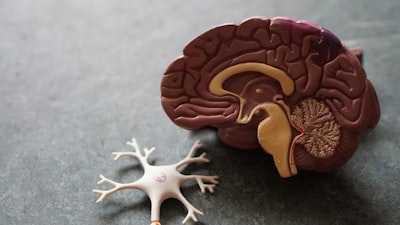The psychological response
If you've ever felt you stomach lucht from anxiety or your heart paplate with fear, the you realize that emotions also cause strong pyschological reactions.
We feel emotions and experience physiological reactions simultaneously.
Many of the physiological responses you experience during an emotion, such as sweaty palms or a racing heartbeat, are regulated by the sympathetic nervous system, a branch of the autonomic nervous system.
The autonomic nervous system controls involuntary body responses, such as blood flow and digestion.
While early studies of the physiology of emotion tended to focus on these autonomic responses, more recent research has targeted the brain's role in emotions.
56
133 reads
CURATED FROM
IDEAS CURATED BY
I'm passionate about helping people live their best lives. I'm a lifestyle coach & burnout coach.
The idea is part of this collection:
Learn more about psychology with this collection
How to communicate effectively with teachers
How to create a supportive learning environment at home
How to manage your child's school schedule and activities
Related collections
Similar ideas to The psychological response
The main role of the PNS
The PNS's primary role is to connect the CNS to the organs, limbs, and skin. The peripheral nervous system is divided into two parts:
- The somatic nervous system. It is responsible for carrying sensory and motor information to and from the CNS.
- The a...
The Stress Response
When someone confronts an oncoming danger, the eyes or ears (or both) send the information to the amygdala, an area of the brain that contributes to emotional processing. When it perceives danger, it instantly sends a distress signal to the hypothalamus.
...
Read & Learn
20x Faster
without
deepstash
with
deepstash
with
deepstash
Personalized microlearning
—
100+ Learning Journeys
—
Access to 200,000+ ideas
—
Access to the mobile app
—
Unlimited idea saving
—
—
Unlimited history
—
—
Unlimited listening to ideas
—
—
Downloading & offline access
—
—
Supercharge your mind with one idea per day
Enter your email and spend 1 minute every day to learn something new.
I agree to receive email updates

